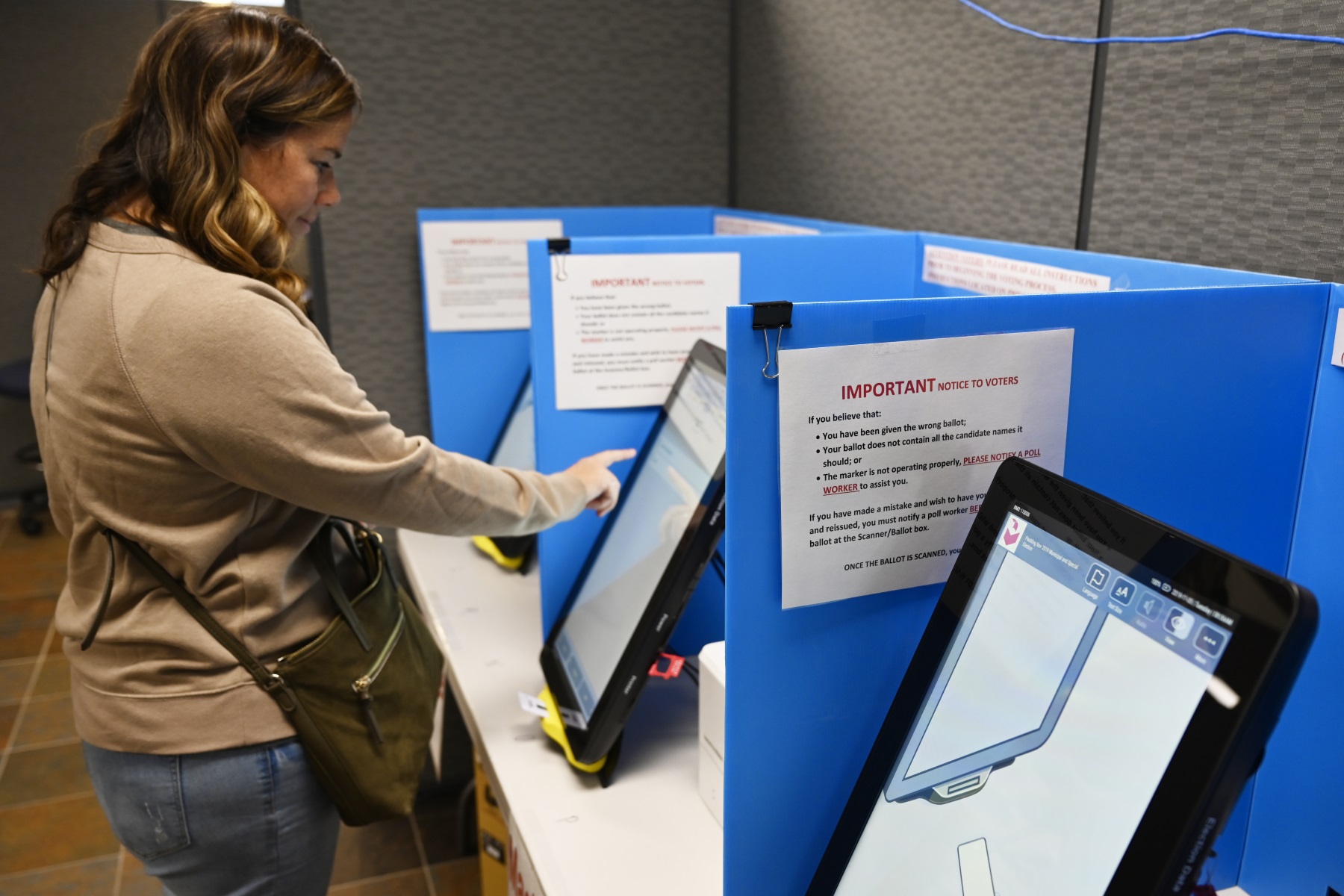Updated at 1:15 p.m. Wednesday
Tuesday was Election Day in Georgia. And while the state didn’t have any high-profile statewide races like we saw in a few spots around the country, several local races and issues were on the ballot.
A great deal of attention was also paid to six Georgia counties that put the state’s new $107 million voting system through its paces as part of a pilot project.
DeKalb County Ethics Referendum
In DeKalb County, the board of ethics referendum went down in defeat.
With all precincts counted, the “No” votes captured 61% of the vote, compared to a little over 38% casting “Yes” votes. Had it been approved, it would have implemented Senate Bill 7, which dictates how the Board of Ethics is chosen. It also would have added several restrictions to the power of the ethics board.
In 2015, the last referendum on the Board of Ethics in DeKalb passed with 92% support, but it was declared unconstitutional by the Georgia Supreme Court, which ruled that the board needed to be appointed by elected officials, not private groups.
DeKalb’s state delegation now has to go back to the drawing board in the next legislative session, while the ethics board remains dormant.
County CEO Michael Thurmond released a statement Wednesday that read in part: “Until the legislature cures the flaws in the current legislation, we are in the untenable position of operating without an ethics board.”
The statement didn’t specify which part of Senate Bill 7 is flawed.
DeKalb Citizens Advocacy Council, which opposed the referendum, said in a statement: “… voters said ‘we hear you, and we agree.’”
That group says the 2015 referendum should be amended to comply with the Constitution, but no other changes made.
Mayoral Races
In Smyrna, Derek Norton (47%) and Ryan Campbell (24%) were the top two vote-getters. With no one winning a majority of the vote, there will be a Dec. 3 runoff election. Outgoing Mayor Max Bacon announced his retirement this year after more than 30 years in office.
In College Park, Bianca Motley (31%) and incumbent Jack Longino (23%) received the most votes. They’ll take part in a December runoff as well.
Jonathan Elmore was reelected mayor in Avondale Estates; Alan Hallman easily won reelection as mayor of Hapeville. In Brookhaven, incumbent John Ernst won reelection. Lynn Deutsch prevailed in the Dunwoody mayor’s race, with Shameka Reynolds capturing Lithonia’s mayor’s seat.
In Doraville, there will be a runoff between Joseph Geierman (39%) and incumbent Donna Pittman (27%).
Incumbent Jason Lary in Stonecrest won reelection by fending off two challengers and winning 55% of the vote. In Gwinnett County, Norcross Mayor Craig Newton held his seat as well.
New Voting Machine Pilot Testing
Evaluation of the new voting system will continue in the coming weeks.
At first glance, the actual voting process appeared to run smoothly along with the ballot scanning process. But there were a few snags with the poll pad, which is the way voters check in with the new system.
Some counties, like Decatur, kept their polls open for an extra hour. Decatur County election official Carol Heard told WABE about a dozen or so voters were affected by the problem. She said keeping the polls open was out of an abundance of caution to make sure those voters had a chance to come back and vote if they chose to.
In Paulding County, elections supervisor Deidre Holden said they were able to offer voters paper ballots to fill out by hand while they waited for the computer glitch to be fixed.
She said voters liked the new system, but it wasn’t without an adjustment period.
“There are just some pieces, some extra pieces that are in there that hopefully by March they’ll have everybody ready to go in there and know what the steps are to making their voting experience successful,” said Holden.
Secretary of State Brad Raffensperger says they will be getting feedback from elections officials and voters regarding how the new system worked and “what things they’d like to see tweaked.”
They’ll also be working to get more of the new voting machines to the counties that did not participate in the pilot so that voters in those counties can experience the new machines at demonstrations and town halls.
“We’ve got 17 years of muscle memory on how we use existing machines. Now we need to build some experience and muscle memory with the new system,” Raffensperger said.
“We’re all working together,” he said. “We all understand how important it is to get this right.”
The state says everything should be in place by the March primaries.










